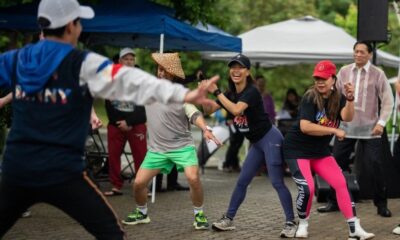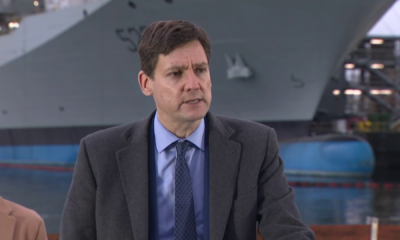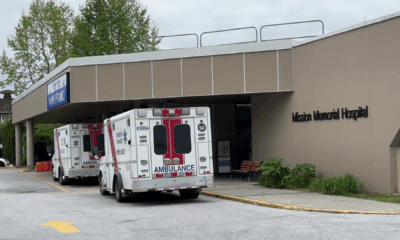Local News
Will Burnaby be home to Vancouver’s newest pro-soccer team?

Representatives from Vancouver’s newest pro-soccer team were in Burnaby earlier this week, making their pitch to council that a stadium in Central Park should be its home base.
The delegation from Vancouver Rise, the Northern Super League’s professional women’s soccer team, presented the proposal to Burnaby city council on Oct. 21.
Sinead King, the club’s president and chief business officer, said that since the club’s inception, she’s had the opportunity to speak to a number of cities and municipalities as the team searches for a home base.
“We feel really strongly that Swangard Stadium is a fantastic opportunity for us to create that home and that connection with community,” she told council.
“And also for Burnaby to be part of building a legacy and having a lasting impact in growing the women’s game,” she said.
Just weeks ago, Burnaby-born Christine Sinclair — Canada’s most successful soccer player of all time — joined the club’s ownership group. She’ll join majority owner Greg Kerfoot in the Rise ownership team.
The new professional women’s league is set to kick off next spring, with games beginning in April 2025. The league will feature six teams from across the country, and while the team will be part of the Whitecaps organization, it has its own branding, name, and colour scheme.
“Christine says it herself, it feels like coming full circle. She started here in Burnaby. She’s the all-time top goal scorer in both men’s and women’s football internationally, she’s retiring at the end of this season, and now she’s coming on to be an owner to leave the sport better than how she found it,” King explained.
For the new team to make Swanguard its home, significant upgrades are required, King told council.
“We also need to make sure that we’re in a place that makes sense for a professional club in a professional league, and so the reason we’re calling this a partnership proposal is because we want to offer all the opportunities for that legacy in that community piece,” King said.
“We also need the stadium to meet the requirements that we have, and some of those core requirements are increasing the seating capacity — we’d be looking for a minimum of 6,000 seats beyond the 4,500 seats that Swangard can cater for today.
“We need to ensure that the grass pitch quality meets the Northern Super League pitch quality standards, and we want to ensure that the locker rooms are adequate for a professional sports team — so the interior is enhanced and the design and layout are capable for the Home and Away and match officials,” she explained.
King told council that if Swanguard was to expand to 6,000 seats, over a 12-game season, there would be “direct business sales” of just under $3 million, with an overall indirect and direct business sales of $4.6 million.
“We will generate jobs, of between 2,500 and 3,000 job opportunities, which would mean personal income of $1.3 million and tax revenue of $33,500,” she claimed. “That’s 72,000 fans that will be coming to Swanguard to watch Vancouver Rise across the season, and we anticipate almost 4,000 of those would stay overnight across that 12-game period.”
“It’s a fantastic opportunity for people to see more about Burnaby, to live, feel, breathe, the community of Burnaby; to be beyond BC Place is Vancouver, and for us to really grow that community feeling and what it would feel like to have a professional sports team in Vancouver.”
King strongly promoted the opportunity to build community, saying that “it’s not just about the financial impact, it’s the community impact.”
“We know Swangard is a place that is the heart of the community.”












